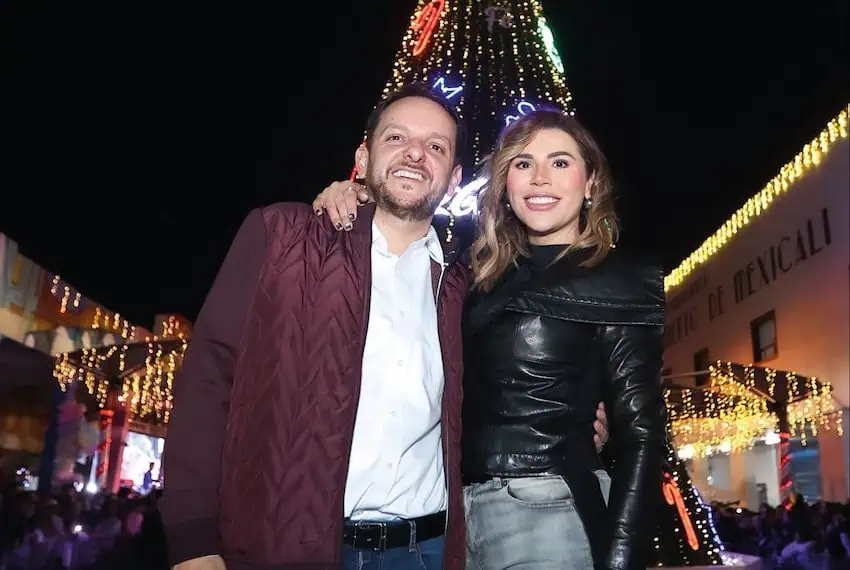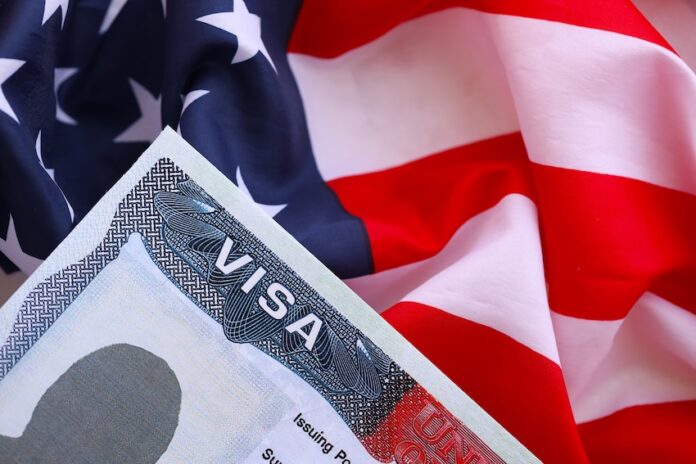The United States government has revoked the U.S. visas of more than 50 Morena party politicians and dozens of officials from other Mexican political parties, according to an unnamed “senior Mexican politician” quoted by the Reuters news agency.
In an exclusive report published on Tuesday, Reuters, citing two unnamed Mexican officials, reported that “the U.S. government has revoked the visas of at least 50 politicians and government officials in Mexico amid the Trump administration’s crackdown on drug cartels and their suspected political allies.”
Later in the report, Reuters quoted one of the sources — “a senior Mexican politician” — as saying that more than 50 politicians from the ruling Morena party have had their visas revoked, along with dozens of officials from other political parties.
That would place the total number of Mexican politicians and officials who have had their U.S. visas revoked this year above 70, at least.
That figure is much higher than the number of confirmed revocations of Mexican officials’ U.S. visas in 2025.
Reuters said it was “unable to ascertain the names of the Mexican officials whose visas have been revoked” beyond those connected to a “handful” of cases that have been publicized.
Citing its sources, the news agency wrote: “The U.S. does not need to provide explanations for revoking someone’s visa and the threshold for doing so is much lower than for imposing sanctions or a prosecution.”
‘The Trump administration is finding new ways to exert more pressure on Mexico’
Citing three former U.S. ambassadors, Reuters reported that previous U.S. administrations “have revoked visas in this way — but not to the same degree.”
The apparent revocation of the visas of dozens of Mexican politicians and officials is “indicative of President Donald Trump’s willingness to use the diplomatic tool to achieve policy goals,” said Reuters, citing its conversations with former ambassadors to Mexico Earl Anthony Wayne and Roberta Jacobson, and ex-ambassador to Panama John Feeley.
ProPublica: US looks to revoke visas of Mexican politicians with alleged cartel ties
“The Trump administration is finding new ways to exert more pressure on Mexico,” said Wayne, ambassador to Mexico from 2011 to 2015.
Jacobson, ambassador to Mexico between 2016 and 2018, told Reuters that when she was a government official, the revocation of politicians’ U.S. visas usually only happened when they had been convicted of a crime or were subject to an ongoing criminal investigation.
According to Reuters, she said that the revocation of a visa could indicate that the person in question is under criminal investigation by the United States, but not necessarily.
“The likelihood is that you won’t know whether or not the U.S. is investigating potentially for years,” Jacobson said.
Feeley, who served as ambassador to Panama from 2015 to 2018, told Reuters that he didn’t recall any Panamanian politician having their visa revoked while he was the United States’ top diplomat in the Central American country.
He said that the apparent widespread revocations of Mexican politicians’ visas “could spur blowback, where President Sheinbaum sees collaborating with the U.S. [on security] as too high of a political cost.”
During the second Trump administration, officials in other Latin American countries, including Brazil and Costa Rica, have also had their U.S. visas revoked.
Reuters: Visa revocations send ‘shockwaves through Mexico’s political elite’
Reuters reported that the revocation of the U.S. visas of Mexican politicians and officials “has sent quiet shockwaves through Mexico’s political elite, who regularly travel to the U.S. and require a visa to do so.”
“It also marks a significant broadening of U.S. anti-narcotics action, with the Trump administration targeting active politicians usually seen as too diplomatically sensitive,” added the news agency.

Among the politicians whose U.S. visas are known to have been revoked this year are:
- Baja California Governor Marina del Pilar Ávila, who was elected on a Morena party ticket in 2021. She has denied any wrongdoing, saying that the revocation of her visa was “an administrative decision, not an accusation.”
- Carlos Torres Torres, a former state and federal deputy, and soon-to-be ex-husband of the Baja California governor.
- Juan Francisco Gim, the mayor of Nogales, Sonora. Gim is a Morena party politician.
- Óscar Eduardo Castro Castro, the mayor of Puerto Peñasco, Sonora. Castro is also a Morena party politician.
An unnamed senior U.S. State Department official told Reuters that “visas, including those held by foreign officials, may be revoked at any time” for “activities that run contrary to America’s national interest.”
The official said those activities could include drug trafficking, visa overstay, corruption, spying or aiding illegal immigration.
Reuters reported that another unnamed source “with knowledge of the visa process said the revocations are part of Trump’s security strategy.”
That source added that “the administration’s designation of some cartels as terrorist organizations means intelligence held by the Drug Enforcement Administration increasingly impacts someone’s U.S. visa status.”
Asked on Tuesday morning about Reuters’ report, President Claudia Sheinbaum said that her government didn’t have information about the reported visa revocations.
“The United States government has been very clear in this, that it’s personal information. Who knows is the person who may have had their visa taken away,” she said.
“… It’s not information that they share with the government of Mexico, given that it’s personal information,” Sheinbaum said, adding that the U.S. government would only share such information if it was related to a “public security” investigation.
The news outlet ProPública reported in May that the Trump administration had “begun to impose travel restrictions and other sanctions on prominent Mexican politicians whom it believes are linked to drug corruption.”
At the time, only the Baja California governor and her husband had acknowledged the revocation of their visas, but ProPública reported U.S. officials as saying that “they expect more Mexicans to be targeted as the administration works through a list of several dozen political figures who have been identified by law enforcement and intelligence agencies as having ties to the drug trade.”
Asked on May 15 about a supposed U.S. “narco-list,” that allegedly includes the names of “narcogobernadores” (narco-governors) and other officials, Sheinbaum responded:
“There are a lot of rumors. They are rumors.”
In June, Reuters reported that “the Trump administration is pressuring Mexico to investigate and prosecute politicians with suspected links to organized crime, and to extradite them to the United States if there are criminal charges to answer there.”
Mexico’s Foreign Affairs Ministry and Sheinbaum denounced that reporting as “completely false.”
The president has defended Morena’s top senator, Adán Augusto López Hernández, who has faced mounting questions about what he knew about the alleged criminal activity of Hernán Bermúdez Requena, his security minister in Tabasco when he was governor of the Gulf coast state from 2019 to 2021. Bermúdez, who is accused of heading up a criminal group called La Barredora, was arrested in Paraguay last month and subsequently extradited to Mexico to face charges.
With reports from Reuters
